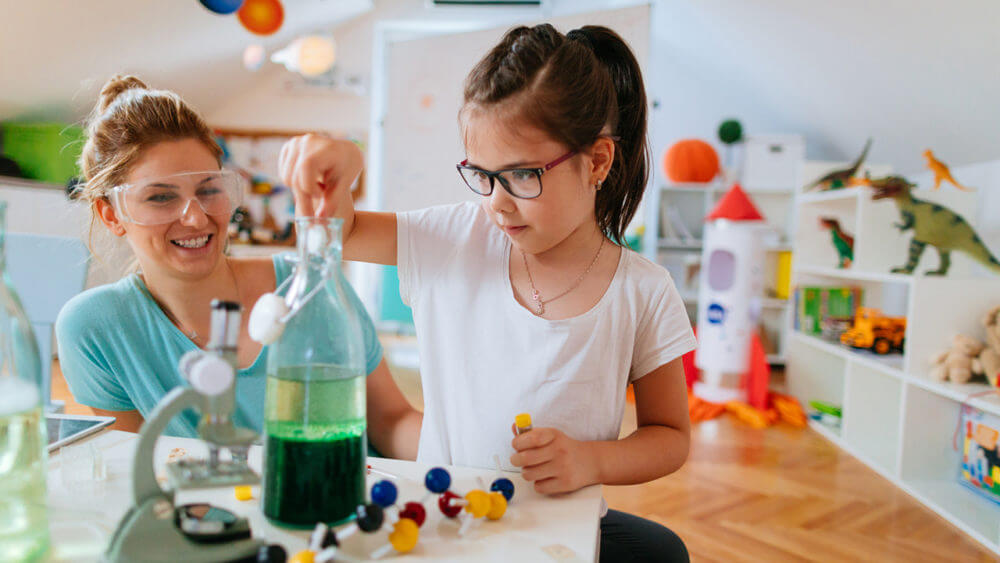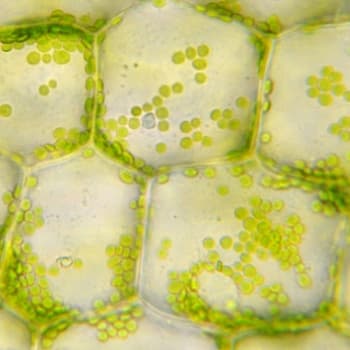How to Enhance Learning With Montessori Science

Montessori science experiments and activities can help kids learn more effectively. It’s no secret these days – not everyone is cut out for traditional types of education. Examinations and conventional lessons can place unnecessary pressure on a child, hindering their performance and impeding their chances of success.
The Montessori method of teaching is designed to give children the freedom to develop at their own pace. It focuses on a child’s learning journey and personal progress rather than comparing them against others using grades or tests.
Studies have shown that this type of schooling promotes maturity, creativity, and social adeptness in kids. If you’ve ever stepped into a Montessori classroom for the first time, you know the feeling of wonder you get seeing all of the children quietly engaged in their own work or working peacefully with a group of their peers. Their teachers (or as they are often called in Montessori, their guides) have strategically crafted a learning environment that is wonderfully inclusive and sets their students up for academic and professional success in later life.
As more and more educators try to increase the focus on STEM in elementary education, the question comes up: how can you incorporate STEM into Montessori science activities?
The answer is … perfectly! There is no better way to learn about STEM than with a Montessori approach.
Table of Contents
- Why Montessori Education Works Best When Teaching Science
- Different Ways of Incorporating Montessori Science Teaching Into Your Child’s Routine
- Try Montessori Laboratory’s Hands-on Science Lessons for Free
Why Montessori Education Works Best When Teaching Science
It Allows The Child To Get Practical
When it comes to learning, most children love to get hands-on and understand how the world works on a practical level. Montessori teaching gives the child full autonomy when it comes to science activities, allowing them to learn by doing, rather than reading. Montessori science experiments can even be seen as Maria Montessori’s continuation of practical life in the second plane of development.
Montessori experiments act as lessons in action. Such experiments make education fun for children, allowing them to learn from what’s tangible, rather than something abstract.
It Inspires Creativity
Montessori learning enables a child to work at their own pace and leisure. This relaxed approach removes pressure from a child, allowing them to see education as something that they can enjoy rather than be forced to engage with.
Children are encouraged to enjoy the process of learning rather than the end result. This forges a natural path towards creativity, where the child is prompted to explore the topics they’re interested in most. Nurturing a genuine interest is the most effective way of helping a child understand complex subjects such as science.
It’s Tailored Specifically to the Child’s Needs (and Wants)
By allowing children to explore various experiments, activities, and ideas at their own pace, Montessori science teaching ensures that every child is comfortable at their rate of learning. This individual approach enables children to better enjoy their education, making learning more fun and more effective. This is particularly beneficial when it comes to learning about science, which can seem complicated at first.
It Gives Them a Greater Sense of the World Around Them
Our world is interconnected in so many different ways. In Montessori, we often refer to these connections as cosmic connections. When a child learns about the world in a way that they connect to, their learning becomes more meaningful. It is much more interesting to learn about the building blocks of our Universe than some random tiny particle called an atom.
The Montessori method gives children an opportunity to learn about science in a way that is relevant to them. It encourages them to solve problems and investigate with their own research. They truly can be scientists at a young age!
Different Ways of Incorporating Montessori Science Teaching Into Your Child’s Routine
The best thing about the Montessori method of teaching is that it’s enjoyable for both the child and their guide. It is designed to foster a desire for knowledge, rather than a reluctance towards education.
Here are some of the best ways you can harness the power of Montessori teaching to help your child learn about science.
Explore Impressionistic Charts and Science Video Lessons
Visual cues can help in comprehending and retaining new information. They are particularly effective for subjects in which students are introduced to complex ideas, like science. The traditional Montessori impressionistic charts show beautiful visuals of many scientific concepts – like the heating and cooling of the Earth as it moves from day to night.
Although they are less traditional, video lessons can also be a wonderful way to help visualize a topic – especially today where many are learning from home either temporarily or permanently. Montessori is all about innovation and creativity, right?
What’s more, video lessons can be more inclusive towards children with physical or learning disabilities, providing both visual and audible aid while allowing the child to work independently.
Use Montessori Science-Related Nomenclature Cards
Montessori nomenclature cards are an incredible way to help a child develop a more thorough understanding of a complex topic through interactive activities.
These cards are designed to make learning more enjoyable, especially for younger children. They help expand a child’s vocabulary while maintaining that crucial hands-on approach to learning, and help them visualize their work with beautiful photos and illustrations.
Nomenclature ‘control cards’ allow a child to correct themselves without the help of a parent or guide. This gives the child a unique and satisfactory sense of autonomy when it comes to learning.
Montessori Science Experiments
We all know children love to get stuck into an exciting science experiment. By giving your child experiment instructions, journal prompts, and research opportunities, you’ll inspire their creativity to no end.
They’ll be given that vital sense of control from the get-go which will naturally foster a desire for learning. Montessori science experiments perfectly encompass all of the benefits associated with this method of teaching. The child will be able to enjoy the practicality of the experiments, get creative with them, and enjoy learning about the subject at their own pace.
If you’re a parent or an educator who wants to start using Montessori science experiments, or expand on the ones you have used, take a look around our website.
We offer comprehensive Montessori science courses that include resources such as Montessori science activities, video lessons, experiment instructions, nomenclature cards, and more.
We can’t wait to help you create an enjoyable and inspiring scientific learning environment!
Try Montessori Laboratory’s Hands-on Science Lessons for Free
The First Great Lesson
Where did the stars come from? And the Sun? How was our Earth created? And what about the rest of…
Combining and Separating
Why does sand settle to the bottom of the ocean, but salt mixes in? How do people get sea salt out…
How Did Humans Discover Fire?
When did we start using fire? What 3 components does fire need to burn?






Responses